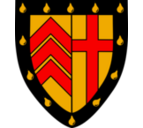ABOUT
Who was William Whiston?
The society is named after William Whiston, who lived from 9th December 1667 - 22nd August 1752. Whiston was an English theologian, historian, and mathematician, a leading figure in the popularisation of the ideas of Isaac Newton.
He is now probably best known for helping to instigate the Longitude Act in 1714 (and his attempts to win the rewards that it promised) and his important translations of the Antiquities of the Jews and other works by Josephus, which are still in print. He was a prominent exponent of Arianism and wrote A New Theory of the Earth. Whiston succeeded his mentor, Sir Isaac Newton, as Lucasian Professor of Mathematics. This position has also been held by Stephen Hawking! Having lost the position over his theological views, he spent the rest of his life as a lecturer and writer.
Clare College, Cambridge
Clare College is the second oldest of Cambridge's thirty-one colleges (its foundation having been anticipated, among surviving institutions, only by Peterhouse). It was founded in 1326 as University Hall, and generously endowed a few years later by Lady Elizabeth de Clare (Lady de Burgh), a granddaughter of King Edward I (1272-1307). During the second half of the nineteenth century the name of the college was changed from Clare Hall to Clare. The various scholarship funds, which the college had received by way of endowment, were amalgamated into a single fund in 1861. In 1866 the college choir was established. The college cricket ground (which lay across the river on the site of the present University Library) was improved, so that the college was able to achieve some distinction in that field. By 1870 the college consisted of sixteen fellows and seventy undergraduates.
It was during the twentieth century, particularly in the decades after the Great War, that numbers of students grew substantially, to the point where further accommodation became a necessity. Memorial Court was built during the 1920s to a design of Giles Gilbert Scott and dedicated in 1926.
In 1966 an endowment from Clare led to the foundation of Clare Hall, designed to be a community of scholars, consisting of both Official and Research Fellows as well as a substantial number of Visiting Fellows; and the first President of Clare Hall (Sir Brian Pippard) as well as several of its founding Fellows were Fellows of Clare at the time of the foundation. A few years later, in 1972, Clare was one of three Cambridge colleges to admit female undergraduates.
Sometime in the early 2000s, the Whiston Society was formed.

